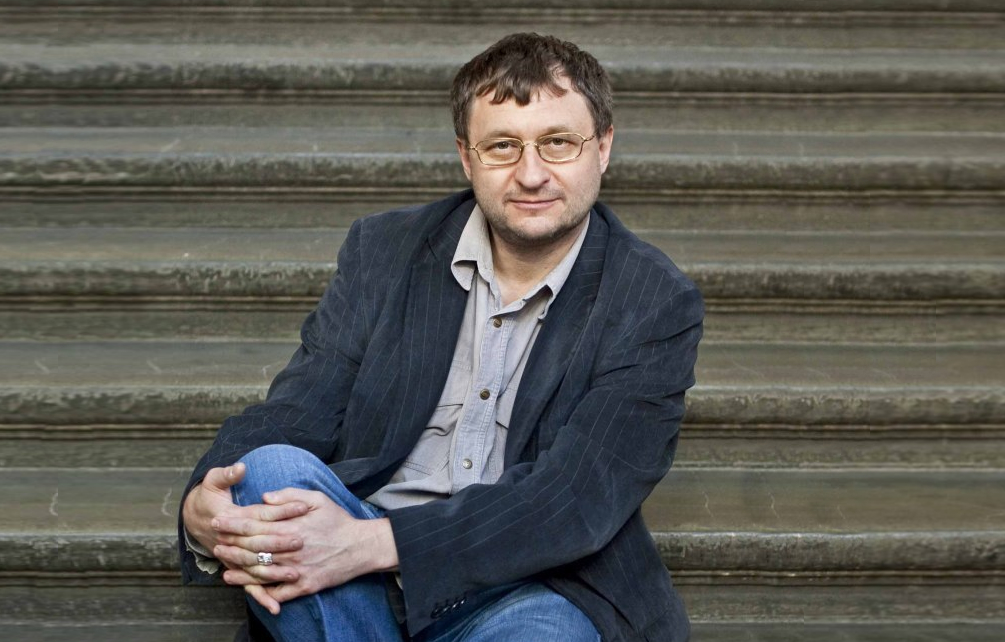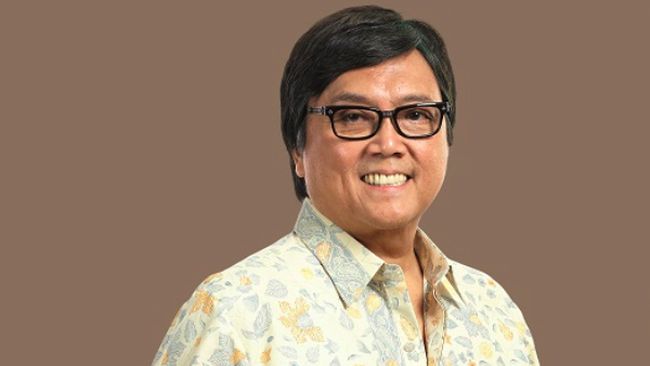A music school is a job, while a music “circle” is entertainment. But in one way or another, music is undoubtedly a language that makes a person rich as a person. Encouraging parents to accustom their children to music from an early age, Andris Vecumnieks, an experienced composer, conductor, musicologist, teacher, as well as the musical director of the Latvian National Symphony Orchestra’s children’s concert series, expressed this in an interview with Lsm.lv.
“Musician” – a new show for children
From September 6 every Sunday at 9.00 LTV1 will watch a new program for children “Musician”.
These will be stories about musical instruments and what you can learn at a music school.
Additional content on and around musical instruments, sound games and other educational materials will be available LSM Children’s Room.
Try it now:
You can play a game in the nursery “Find the sound!”, learn to hear and distinguish the sounds of different musical instruments.
The game “Who owns the sound?” teaches to hear sounds and understand their belonging.
–
–
How do you assess the current offer of music education in Latvia for children?
Rarely can we find such a model of music education funding in the world, which is actually an extremely expensive pleasure.
Our education system for children is unique because it is inherited from the Soviet times and is still practically free, thanks to state and municipal support or with the symbolic participation of parents financially.
There are more than 100 music schools, more than 10 music secondary schools and universities in Latvia. It provides an opportunity to build a musical pyramid, where the music school is at the top, the middle stage is the high school and the foundation is the music school. So parents should understand for themselves what they want.
What should parents consider when choosing a child’s music education?
One possibility is professional music education, which will not involve some parents and children without understanding why they have to sing or play certain things. There is a story about a fundamental theoretical basis that allows a child in the future with the characteristics of a talent and with his own desire to move through this pyramid to the profession of a musician. This is an opportunity to choose music as your main profession.
Another option is to offer music schools as a place for the child to do what he or she likes, but without a deeper desire or understanding that he or she could be a professional musician. However, this opportunity is also of great value, as it educates educated listeners, who later become erudite concert goers.
How does music education affect personality development?
My experience shows that many doctors, lawyers and other responsible and precise professions have been associated with music school as children. In turn, the work at the Latvian Academy of Culture reveals that at least 75% of students have also attended music school in each course.
At the same time, these music (sometimes also music and art) school regions also have a kind of cultural “oasis” or center. Parents need to understand that if a child attends a music school, they spend their free time in an intelligent environment, rather than wasting their time aimlessly.
Parents need to keep in mind that music education leads to a certain system, to order and to responsibility. It teaches from an early age the need to plan your time. Without precision, the everyday life of a musician is unthinkable, just like that of an actor. If a show or concert is scheduled for a specific time, then the event must begin. In the field of public services, one often has to face this delay, the inability to do something in a certain time.
–
Character tempering from an early age?
Yes, but it means that parents must be present in the process. I will say frankly and directly.
When choosing a serious music school, this choice almost virtually excludes other additional activities or groups from the child’s daily routine.
If the parents themselves are from the musicians, it will be understandable, but if the parents are not musicians, you should try to understand it. If, in addition to music school, the child also has sports, dancing or any other activities, it is undeniable that the child spends time usefully, but it will not be possible to think professionally about the musician’s education in this situation for a long time.
It is believed that when a child is born, he has absolute hearing. Can parents clumsily damage it in childhood?
Absolute hearing can be trained. Absolute hearing can also be lost. There are different music education systems and music education schools. One of them is the method of the German composer and music teacher Karl Orf, which envisages that from an early age children can create various rhythmic combinations, timbres, sounds with the help of percussion instruments. In principle, it is an insight into prehistory, where sound was first and foremost the rhythm by which communication took place. Music is a language. If this language is understood, it is clear what the story is about. You need to find this key. Every child who attends a music school understands this language more or less, even if he or she speaks it or just listens to how others do it. If the parents themselves have no experience with music, trust the teacher.
What are the signs that a child is worth attending a music school?
Keep an eye on how the child reacts when the music is playing. Does the child not go away as soon as some musical sounds are heard? From the experience of conducting concerts for children, I see that there are children who constantly bite and talk during them, but there are the other part of children who are almost enchanted and listen to the music. This can be observed by each parent in the behavior of their children. You have to go to a concert with your child. We have to see how he perceives it. Maybe a child’s attention is attracted by a particular musical instrument. Does the child like to sing or not? Can the child perceive and hold the melody?
What do parents need to understand in order to assess whether it is worthwhile for the child to continue the music school classes in the long run?
It all depends on whether it is an interest education or a step towards vocational education. In Latvia, all children’s music schools have a vocational orientation. It must be said
music is practically impossible to learn qualitatively remotely. It requires live communication.
No best internet platform can do what can be taught by high-quality face-to-face music education to ensure that musical performance contributes to listeners.
To become a high-level musician, it means 12 school years and another four to six years at the Academy of Music. Deciding in favor of the Academy of Music in a high school class without going into music is too late. Not everyone who attends a music school definitely becomes a professional musician. However, the earlier these children come into contact with the world of music, the more fully they enrich themselves, discipline themselves, promoting the existence of an intelligent cultural environment in Latvian society.
Another important factor in this industry is the personality of the teacher?
Until the age of the fifth or sixth grade, the child may still have different groups, but sooner or later it is recommended to focus on the child’s further progress, gradually selecting the most attractive for him, leaving free time. This process definitely requires a conversation with the teacher. At the music school level, there are two things on the part of the teacher – professionalism and interest. It is the teacher’s job to interest, but not indulge, by losing professional criteria, such as how to play the piano or violin.
In many cases, it is the rules of the professional music game that can discourage children or parents from further advancing in the field of music. The teacher must be able to interest in such a way that the child understands why something is being asked of him or her. A good educator is one who is able to explain very simply, in a way that is understandable according to age. The most pedagogical answer is “because it is needed”. It’s one nail in losing interest. It happens that a child starts to avoid music school even if an educator does not know how to interest him. The personality factor is important.
Music is an extremely beautiful but difficult profession. If these two things can be understood and accepted, then this is the right choice.
What to consider when choosing musical events for children?
The offer of musical events for children is large enough. For example, the Latvian National Symphony Orchestra is an opportunity for families with children aged 5 to 10, allowing them to talk about this experience after the concert. In contrast, the work of “Latvian Concerts” is focused on class groups and their music teachers who teach music in general education schools, striving to reach as many people as possible in all age groups – from pre-school to secondary school.
Can offering a child from an early age play musical instruments does no harm to the child’s musicality?
Toy musical instruments can be used, as any toy can be the beginning of a deeper and more professional understanding if there is already interest in the toy.
What can be done in the family without attending music lessons in order to stimulate the child’s interest in music?
At one time in the 19th century, making music at home was a honor at home. The basis was to sing or play a musical instrument in the family, perceiving it as the norm of intelligence. Nowadays, both theoretical information and practical opportunities to watch any show and concert from anywhere in the world are available. If parents or grandparents play a musical instrument themselves, it can also arouse interest in the child.
In addition, it is never too late for adults to educate themselves professionally, for example in music.
If you have graduated from a music school, in many cases these people are then professionally educated listeners with a clear language of music. For example, it is interesting to look at the audience of the chamber orchestra “Sinfonietta Rīga”. The orchestra does not always play popular academic music, but also exquisite repertoire, such as 20th century music, which for many is a “bogey”. We see that the audience has a huge interest and even an honor to listen to this complex music. Learning music stimulates thinking, imagination, even the understanding of philosophical concepts.
Should classical music be encouraged to awaken musicality in children? Shouldn’t we also be afraid of accidental popular music playing on radio stations?
I’m not against listening to popular music. But two things need to be understood. First of all, all music must be professional. In many cases, we forget that pop music also has its own professional criteria. Secondly, you need to know for which occasion and when to choose one or the other music.
We are unlikely to listen to Mozart’s or Haydan’s string quartets at a party these days, unless it is intended as an elite event. Any non-academic music eventually becomes academic. Many cannot even imagine that making music for a string quartet once arose as home music, in many cases as a musical design, as a background. Mozart’s “Little Night Music” is a piece of summer plein air for the background. Jazz music is actually party dance music, but over time, the non-academic becomes an academic asset.
The main task of non-academic music is to entertain, but the main task of academic music is to be serious, stimulating thinking and encouraging the listener to think.
Similarly, we can say about music lessons: “group” is entertainment, while music school is a serious and responsible job.
–


